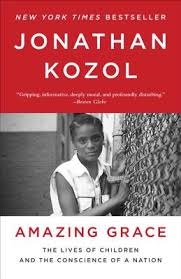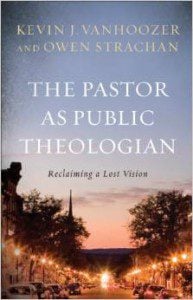 I remember being out in the back room in my home in Machias, Maine. I was a librarian’s son, and so there were books in great quantities in said house. I loved it.
I remember being out in the back room in my home in Machias, Maine. I was a librarian’s son, and so there were books in great quantities in said house. I loved it.
One day, having finished my latest basketball book (I nurtured something of an obsession with fine sportswriting as a boy), I wandered into the back room and came across Jonathan Kozol’s Amazing Grace: The Lives of Children and the Conscience of a Nation (Broadway, 1995). Kozol’s elegant profiles of struggling urban children touched me to my core. I did not know how to figure out solutions to the problems these children faced, but I connected on an emotional level with the issues at hand. I still do.
In reading Kozol’s work, and in encountering powerful stories like that of Geoffrey Canada (a fellow Bowdoin alum and former CEO of the pioneering Harlem Children’s Zone), I heard anecdotal evidence about the problem of fatherlessness (and, accordingly, the broken family). But this problem was not the focus of the sociological work I read. The culprit for urban poverty and its terrible bouquet of effects was many things: the free market, greedy capitalists, Ronald Reagan, widening income inequality, and so on. I was confused by these arguments, which were often made with moral fervor.
The instinct for justice among progressive sociologists and writers was and is laudable. Indeed, as a Christian, I believe that a thirst for public justice is part of the imago dei. I do not sneer, therefore, at people of any background who wish to tackle inequity and terrible hardship. Conservatives of various kinds sometimes fall into that behavior, and it’s not helpful. But my reading on the issue has, I believe, matured and deepened.
I’m thankful for good research on poverty, both its causes and its cures. A many-sided beast like poverty will necessarily involve complex, “thick” solutions. But I’ve been struck by the findings in a number of studies from top institutions and scholars. At least part of the solution to poverty of all kinds is simply this: family stability. Consider these statistics from a recent Wall Street Journal article:
The poverty rate would be 25% lower if today’s family structure resembled that of 1970, according to the 2009 report “Creating an Opportunity Society” from Brookings Institution analysts Ron Haskins and Isabel Sawhill. A 2006 article in the journal Demography by Penn State sociologist Molly Martin estimates that 41% of the economic inequality created between 1976-2000 was the result of changed family structure.
Read the whole piece. It will repay your consideration.
The findings signal rather straightforwardly that people benefit tremendously from the traditional family structure of one man united to one woman for a lifetime. I say “people,” because this is true of everybody: kids, fathers and mothers, extended family, society more broadly. The progressive solution to the problems of poverty and income inequality is and has been to, in many instances, make government bigger and give more money to families in need. This is, again, a laudable instinct. But it is not sufficient. It is not a long-term solution. The strengthening of the family, on the other hand, does offer long-term help.
I do not mean to indicate that returning our society to traditional marriage will solve every issue. It will not. There is no panacea for all that ails us in this life. I do not think, furthermore, that Christians should only seek the strengthening of the natural family. There are many ways in which we should be involved in the suffering all around us. But this simple and powerful palliative should be front and center in our socioeconomic debates. The natural family, created by God and substantiated by our bodies, has tremendous horsepower for good.
The hunger for justice is not abating in our world. If Christians and conservatives are only heard as championing business, we will do little to connect with this broader concern. If, however, we marry the economic with the social, the familial with the spiritual, we will go a long way toward offering suffering people real hope. We cannot solve poverty and pain. Only Jesus can. But surely we can get think well, make good and sound arguments, and remind ourselves that we, and not someone else, are commissioned to be salt and light (Matthew 5:13-16).















